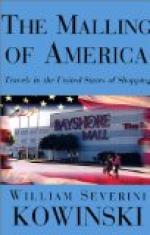Yours sincerely, &c.
* * * * *
Philadelphia, February 21st 1795.
DEAR SIR,
You know one motive for my coming to this country was, that I might have an unlimited range in my two favourite amusements, shooting, and fishing, and in both I have had tolerable sport. But as few except emigrants, follow the european method of shooting, I cannot purchase a pointer for any sum: pray send me one by an early fall ship, and if possible smuggle me half a dozen pounds of Battel powder; for since you have begun to cut one another’s throats in Europe, I find it impossible to procure any but dutch, and that unglazed, at the moderate price of two dollars a pound.
We have two kinds of partridges; one larger, and the other smaller, than those of Europe: the former reside chiefly in the woods, and is in the southern states called a pheasant; but it is in fact neither one nor the other: the latter is called a quail in the northern states. The flesh of these birds is perfectly rich, white, and juicy, and though it has not a game flavour, is a very great delicacy. In other respects (except their size, and that they occasionally perch on the branches of a tree,) they differ very little in their plumage, call, manner of keeping in coveys, &c., from the partridge of England. They are amazingly prolific; I have often found twelve or fourteen coveys in the course of a few hours shooting; this will appear extraordinary, when you are informed there are no game laws in America, and that all ranks of citizens, or even a negro, may destroy them in any manner he pleases. When the snow is on the ground, whole coveys are taken in traps, and brought alive to market. They fly swiftly, and afford an excellent shot; but if the same covey be shot at a second time, they will often seek a refuge in the woods, whence it is difficult to dislodge them. They are very hardy, and will bear almost any degree of heat and cold; this circumstance, and their being so prolific, I should think would make a breed of them in England a very desirable acquisition. I am determined to bring over a few couples, by way of experiment.
We are visited by a sort of woodcock in July and August; we have also a kind of grouse, plover, dove, and wild pigeon, snipe, wild fowl, and a wonderful variety of small birds; among which, the reed-bird [Footnote: So called from their note resembling the word reed.], or american ortolan, justly holds the first place: they visit us from the south, and are found at certain seasons as far as the West Indies in that direction.
The back woodsmen, and indeed all western settlers, affect to despise our mode of shooting; they all use rifles, and throw a single ball to a great degree of certainty. The riflemen in the last war were all of this description, Their game are deer, bear, beaver, and other animals. The only bird they think worthy their attention is the wild turkey. An american naturalist (Bartram) says, “Our turkey of America is a very different species from the meleagris of Asia and Europe. I have seen several that have weighed between twenty and thirty pounds, and some have been killed that have weighed nearly forty pounds.”




